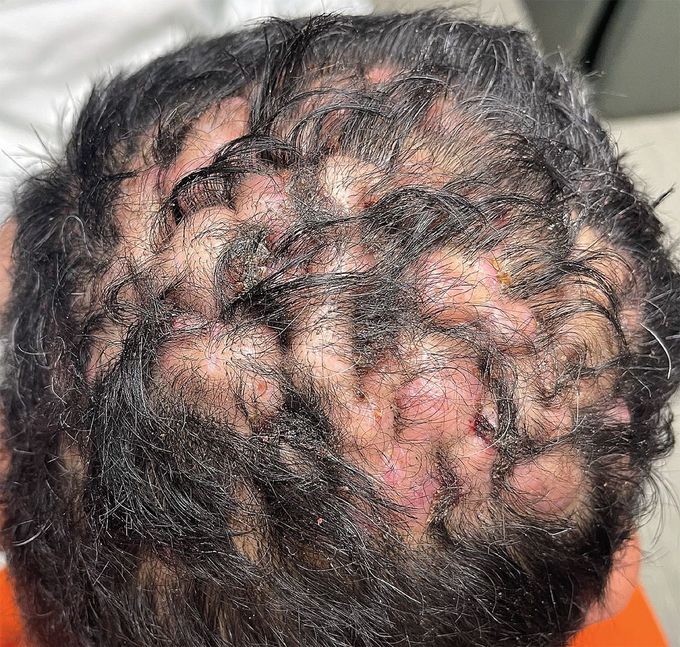


Dissecting Cellulitis of the Scalp
A previously healthy 47-year-old man presented to the emergency department with a 7-month of history of a painful rash on his head that had not abated despite multiple courses of oral antimicrobial agents. The vital signs were normal. On physical examination, there were multiple tender, boggy, and erythematous nodules with scant purulent and serosanguinous drainage on the vertex of the scalp accompanied by overlying alopecia. There were no skin changes elsewhere. The white-cell count was normal, and other laboratory studies, including a fourth-generation human immunodeficiency virus test and a rapid plasma reagin test, were negative. A diagnosis of dissecting cellulitis of the scalp was made. Dissecting cellulitis of the scalp is a chronic inflammatory skin condition characterized by boggy, suppurative nodules and patchy hair loss. The condition is triggered by follicular occlusion and may be associated with other follicular occlusive disorders, such as acne conglobata, hidradenitis suppurativa, and pilonidal cysts, none of which were present in this patient. Treatment with topical glucocorticoids and oral doxycycline was initiated. At the 4-week follow-up, the scalp drainage and swelling had abated. Salim N. Najjar, M.D. Alec B. Rezigh, M.D. Baylor College of Medicine, Houston, TX source: nejm.org

